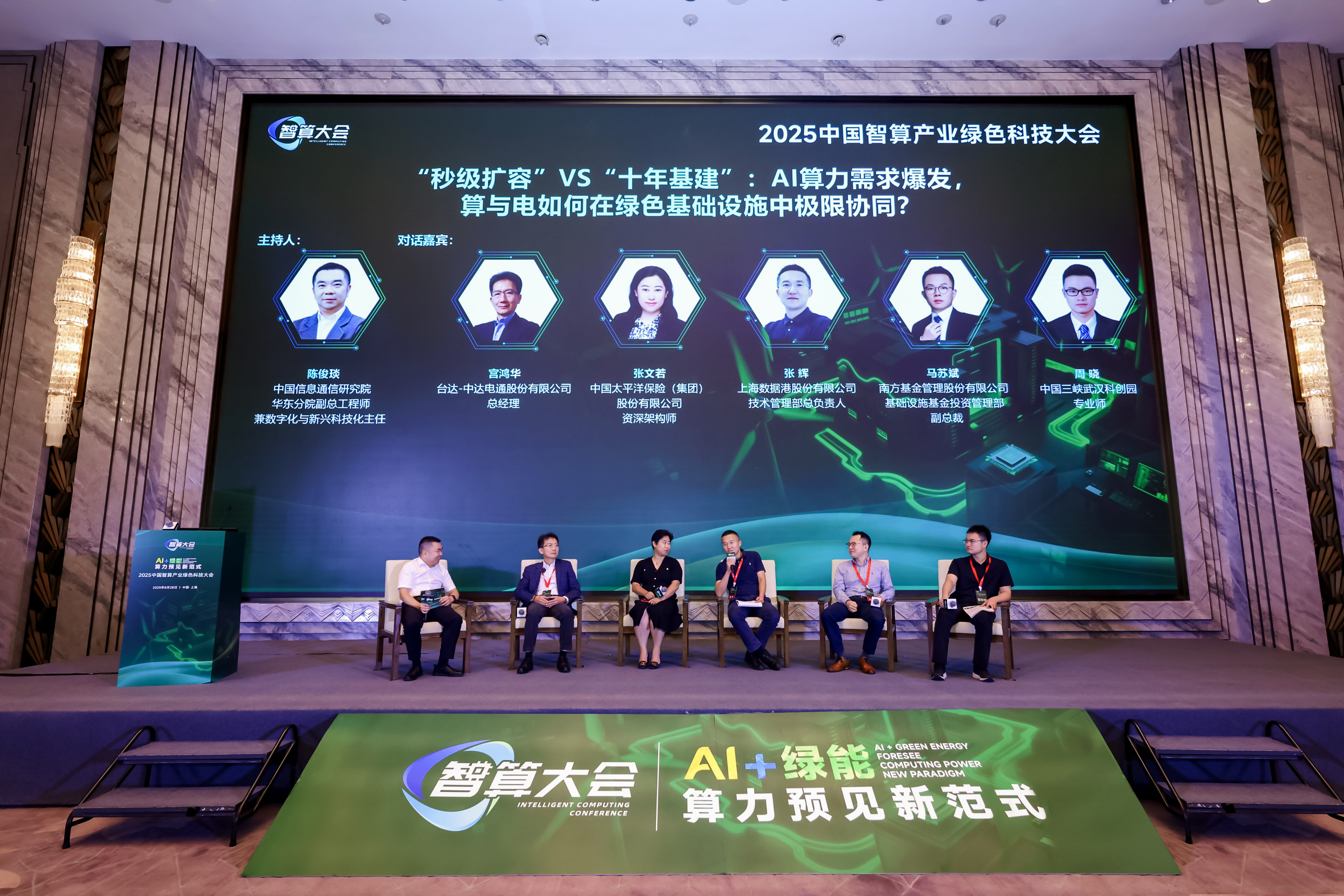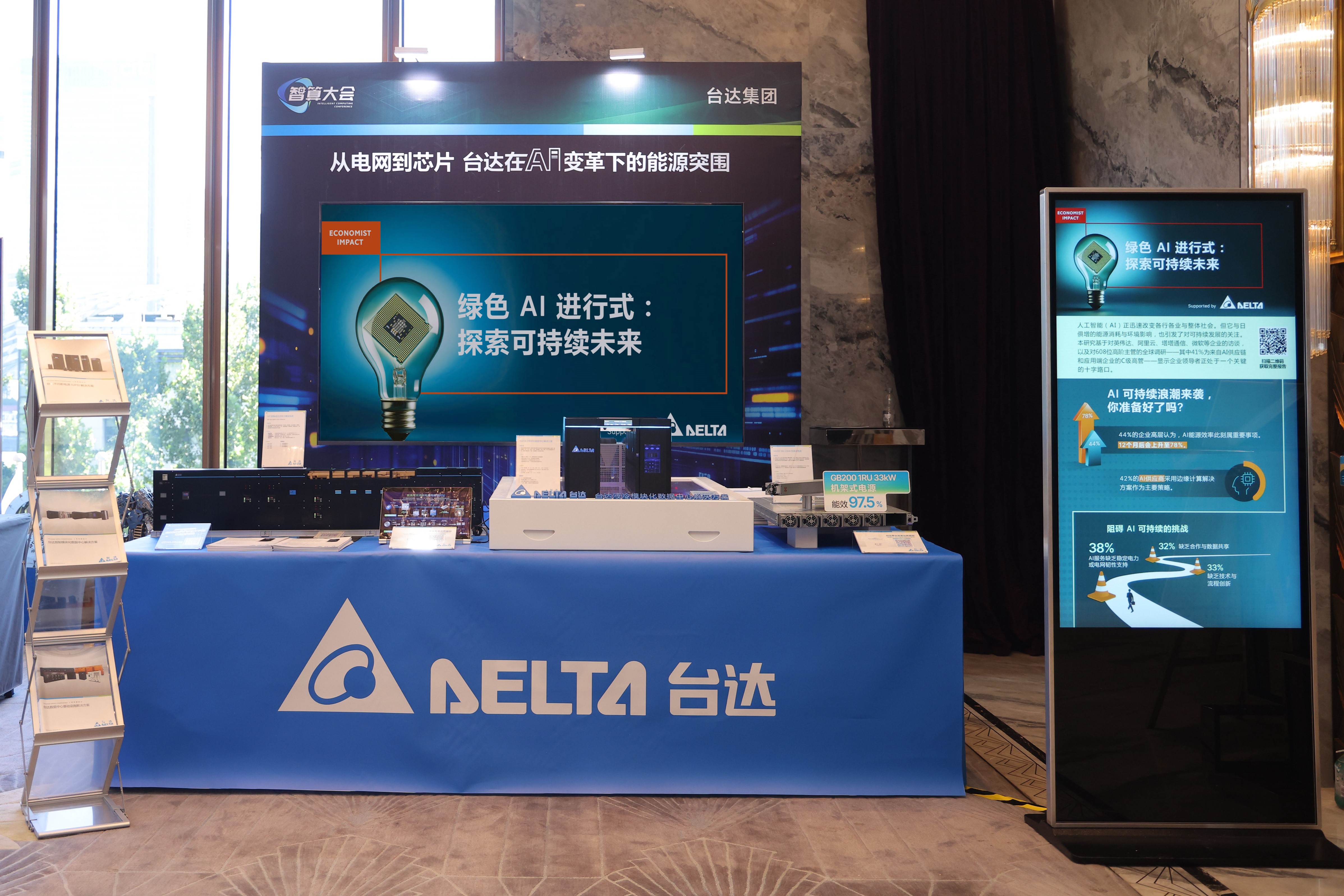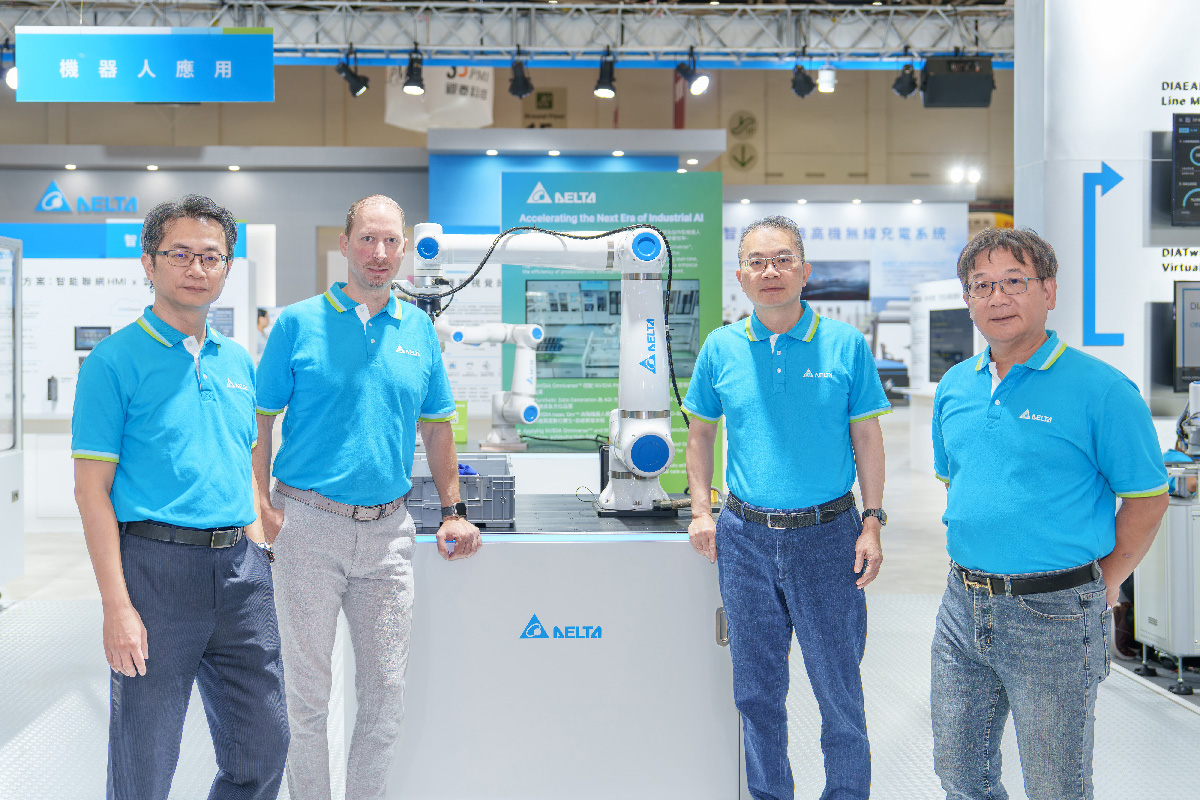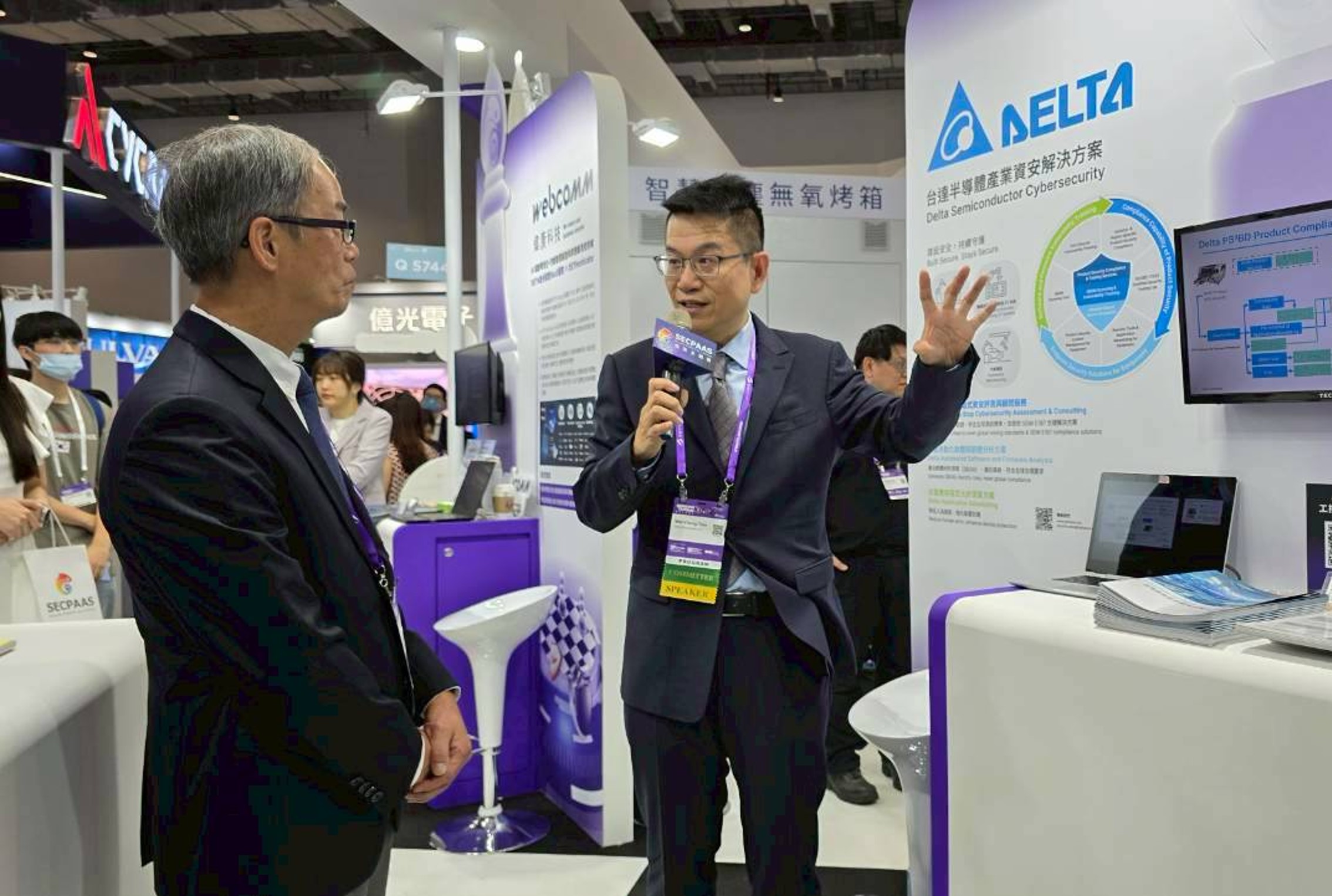Delta recently participated in the "2025 China Intelligent Computing Industry Green Technology Conference," where it shared forward-looking insights and green solutions for the intelligent computing sector. At the main forum, Delta GreenTech China (DGC) General Manager, Howard Kung, delivered a keynote speech titled “From Grid to Chip: Delta’s Energy Breakthroughs Amid the AI Revolution.” During the event, Delta also unveiled the Economist Impact global research report, supported by Delta, titled “Green AI in Action: Charting a Sustainable Future”(Chinese edition). Based on a survey of 608 senior executives and expert interviews, the report highlights the opportunities and challenges enterprises face in advancing sustainable AI development.
 General Manager Howard Kung (second from left) attended the 2025 China Intelligent Computing Industry Green Technology Conference.
General Manager Howard Kung (second from left) attended the 2025 China Intelligent Computing Industry Green Technology Conference.
The General Manager, Mr. Kung emphasized that for enterprises adopting AI, it is not only essential to enhance energy efficiency and optimize infrastructure, but also to rely on collaboration across the entire industry value chain. He further highlighted that the rapid growth of AI computing capacity poses significant challenges to energy infrastructure, underscoring the urgent market demand for “sustainable AI.” Improving energy conversion efficiency, developing smart microgrids, and building green data centers are key to advancing energy efficiency across all links of the chain.
Delta's practices demonstrate that technological empowerment is central to transforming green electricity into high-efficiency AI computing power, while also requiring collaboration and innovation throughout the industry value chain. Building on a deep understanding of AI-related challenges and guided by its “From Grid to Chip” philosophy of energy efficiency optimization, Delta showcased at the conference its comprehensive portfolio of green solutions designed for the AI intelligent computing era:
- Smart Microgrids: Integrating renewable energy, energy storage, and intelligent management to enhance grid resilience, support green power trading, and reduce electricity costs.
- 800V DC Power Supply Technology: Centered on a solid-state transformer (SST) with 98% conversion efficiency and a 50% reduction in size, this solution is designed for data center loads and the integration of new energy sources. It reduces energy loss in power transmission and improves overall system efficiency, making it particularly suitable for high-power-density AI computing centers. (Note: DGC recently took the lead in publishing China's first “800V DC Power Supply White Paper,” providing technological support for the AI industry's green transition.)
- Liquid Cooling Solutions: Delta offers a complete suite of liquid cooling solutions ranging from the chip level to the data hall level, significantly improving energy utilization efficiency and enabling higher-density computing deployments.
- AI Containerized Data Centers: Green computing modules that allow rapid deployment and flexible expansion. They effectively address enterprises’ challenges in quickly deploying high-performance AI computing capabilities on-premises, serving as the ideal choice for achieving “closer and more flexible” computing power.
By participating in the Intelligent Computing Conference, Delta demonstrated its technological strength and leadership in advancing the sustainable development of AI computing. Delta will continue to collaborate with partners across industries to optimize energy efficiency throughout the value chain, building a high-efficiency, reliable, and green AI computing infrastructure. Together, we embrace a new paradigm of “AI + Green Energy” to accelerate global sustainable development.

Delta showcased its comprehensive portfolio of green solutions at the conference along with highlights from the report “Green AI in Action: Charting a Sustainable Future.”















